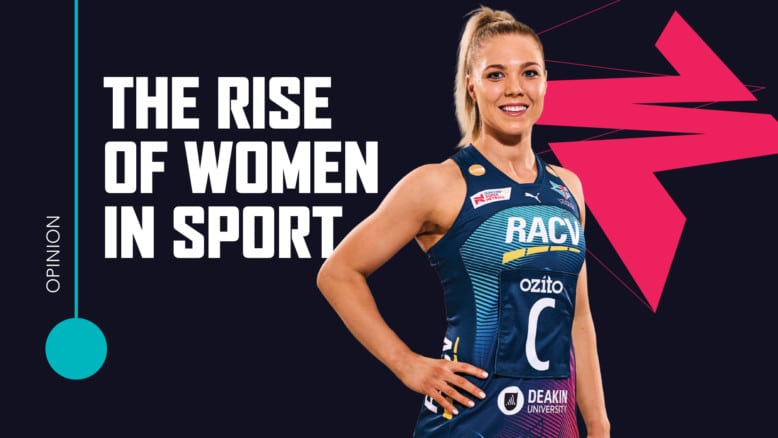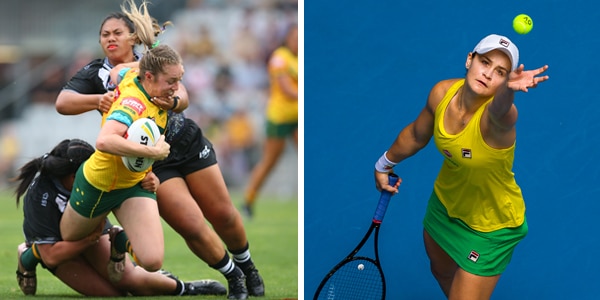The Rise of Women in Sport

The Rise of Women in Sport

Words by Liz Ellis, Australian Netball legend and Nine Wide World of Sports commentator.
No longer content to sit on the sidelines, the sisters are now doing it for themselves.
Once the near exclusive domain of blokes, sport-as-entertainment is starting to look a lot different. Female athletes, and the entertainment they produce, are becoming hot property. For a long time, we suspected that women passing, catching and hitting a ball could fill stadiums and light up screens. Now we know it.
No longer a sideline to the main event, it is increasingly becoming the main event. For an old duck like me it feels like on the one hand it has been a long time coming, and on the other hand something that has happened nearly overnight. It also feels incredibly satisfying that broadcasters and sponsors see that potential.
Just five years ago netball was paying broadcasters to show its domestic league, and there was no such thing as Women’s NRL or Women’s State of Origin.
Yet here we are, heading into 2020 with all of the above, and all of them live and free on the Nine network. Athletes like Ash Barty, Ellyse Perry, Laura Langman and Kezie Apps are household names, and can, on any given weekend, be found with a flick of the remote control. And once people are finding them, they are watching them. Ratings for Super Netball are up two per cent year-on-year and this year’s Women’s State of Origin match out rated the Swans v Hawthorn match in Sydney by almost two to one.
I have to pinch myself when I see the Wide World of Sports logo come up on screen at the start of a Suncorp Super Netball broadcast; when the Constellation Cup, the annual test series between Australia and New Zealand, gets the full Channel 9 treatment, complete with Ray Warren voiceover.
For a long time netball was the outlier, the one women’s sport that was shown regularly on television. Now we have company, and that is a good thing. I am often asked if the rise of other women’s sport is a threat to netball. On the contrary, it represents an opportunity.
That opportunity is the normalisation of women playing professional sport on the television. When my eight-year-old daughter turns on the television and finds women playing netball, cricket, or football, she can see so many opportunities for people just like her. She can fall in love with any number of sports and athletes in a way
I couldn’t when I was a little girl.
This is beyond exciting.

I couldn’t be happier that women’s sport is taking its place and making headlines of its own. That female athletes are being celebrated, scrutinised and analysed just like their male counterparts.
But do you know what would make me really happy? Really excited? When we stop talking about women’s sport. When we no longer mention female athletes. When athletes are just athletes and sport is just sport. Five years ago I thought that this might never happen.
Now it feels so close I could touch it. Or tackle it.






